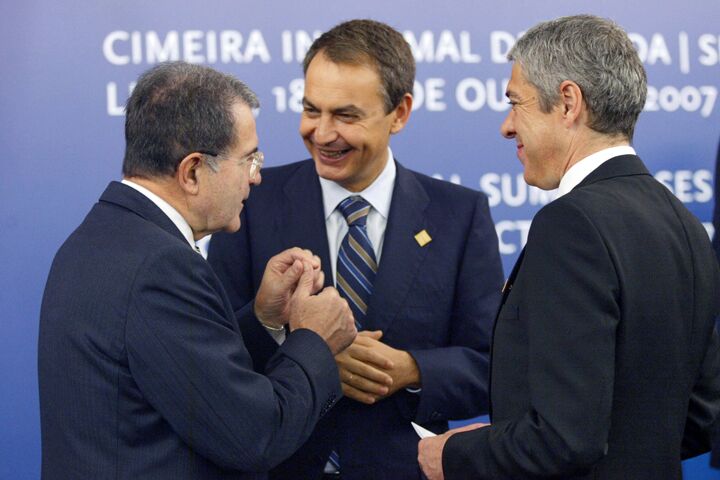
EU Leaders Finalize New Treaty
Last Friday, European Union leaders finalized the text of the Lisbon Treaty, as the EU reform treaty will be known. The document is scheduled to be signed at the next session of the European Council, on December 13. With its content finalized, this replacement for the failed European Constitution is set to take effect on Jan. 1, 2009, pending ratification by all member states.
The Wall Street Journal reports, “While the Lisbon Treaty lacks the national anthem and other trappings that helped make the constitution a little too transnationally unifying for voters in some countries, its main goal is the same: greater political power that could harness the EU’s economic prowess and give the bloc more global influence” (October 19).
The European Constitution foundered in 2005 after Dutch and French voters rejected it in referendums. Since the main opposition to the constitution was that it was too “transnationally unifying,” EU bureaucrats toned down its language to formulate the Lisbon Treaty. This is a “treaty” and not a “constitution,” it makes no reference to flags and anthems, and it has a “High Representative for the Common Foreign and Security Policy” in place of a foreign minister.
In reality, however, the Lisbon Treaty functions as a cloaked constitution. As well as creating a quasi-foreign minister, key reforms in the Lisbon Treaty include:
• Changing the decision-making process to allow more areas of EU policy to be determined by majority rule instead of unanimous vote (starting in 2014).
• Slimming the size of the European Commission to make it more efficient (starting in 2014).
• Abolishing the six-month rotating EU presidency in favor of an EU president who is elected by the European Parliament for a 2½-year term.
With a Parliament-elected EU president, an EU “foreign minister” and a more efficient voting system, the Lisbon Treaty could unify the EU as never before. Yet for this to happen, all 27 members must ratify the treaty.
British Prime Minister Gordon Brown will seek ratification of the treaty from the UK Parliament over the next couple months. He is desperately trying to convince the British people that the Lisbon Treaty is just “a modest piece of housekeeping,” and that it is too complex for a referendum (Economist.com, October 19).
Approximately 70 percent of Britons support a referendum, yet Brown’s government still refuses to conduct one. British Shadow Foreign Secretary William Hague stated, “Their refusal to hold a referendum also demonstrates the cynical and deceitful nature of this government.”
Many Britons do not want the EU to increase its power over them and do not want the transnationally unifying Lisbon Treaty. This may prove to be the critical stumbling block for ratification—or the final argument that edges Britain out of the European Union.
Continue to watch for signs of European unification through political strong-arming rather than popular mandates—and for Britain to part company with this project.
